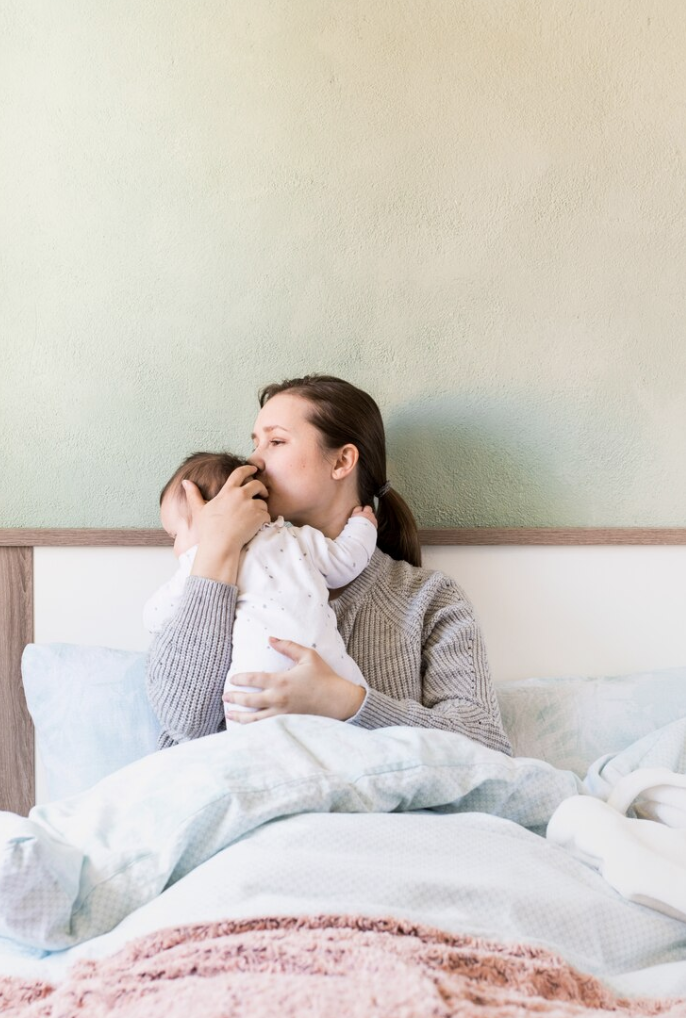Postpartum anxiety is often overlooked in new mothers, and yet it is a common experience after childbirth. Much attention is given to postpartum depression, however, the anxiety piece is just as crucial to understand due to its significant impact on a mother’s well-being. Understanding the causes and risk factors associated with postpartum anxiety can help raise awareness and provide better support for struggling new mothers.

What Is Postpartum Anxiety?
Postpartum anxiety is classified by excessive fear, worry, and tension that interferes with a mother to care for herself or her baby. Unlike typical worries that come with having children, postpartum anxiety involves persistent and relentless anxiety that completely consumes new moms. Physical symptoms are often present, including rapid heartbeat, racing thoughts, dizziness, and difficulty breathing. Some women experience panic attacks, leading to hospitalization or the diagnosis of a more severe mental disorder.
Causes of Postpartum Anxiety
Hormonal Changes:
After childbirth, there is a significant drop in estrogen and progesterone levels, causing a drastic change in women’s moods and feelings of anxiety.
Sleep Deprivation:
New mothers will experience constant sleep disruptions due to caring for a newborn. Chronic sleep deprivation can spike anxiety and stress, making it difficult to manage emotions effectively.
Psychological and Physical Recovery
Transitioning into motherhood can be a major adjustment in a woman’s life. There are new responsibilities to be mindful of, a shift in identity, societal pressures of what it means to be a “good mom,” and even some self-doubt about their ability to be a mother.
Women’s bodies take time and quite a bit of energy to heal from childbirth. In some cases, delivery can lead to significant health implications or issues. Pain, discomfort, and worrying about physical health can greatly impact anxiety.
Risk Factors for Postpartum Anxiety
Personal or Family History of Anxiety
Women with a family medical history of anxiety, or have experienced generalized anxiety symptoms in the past, are more likely to develop postpartum anxiety.
Previous Postpartum Anxiety or Depression Experiences
Unfortunately, mothers who previously developed postpartum anxiety or depression with their first child are more likely to experience it again with any future pregnancies.
High-Stress Levels
Experiencing high levels of stress, whether it’s from personal life, financial struggles, work problems, or relationship issues, can increase the risk of developing postpartum anxiety. The additional stressors can spike the feelings of anxiety relating to new motherhood.
Lack of Support
A lack of social support from partners, friends, or family can leave mothers feeling lonely and overwhelmed. Adequate support is essential for navigating the challenges of becoming a parent.
Difficult Pregnancy or Birth Experience
Complications during pregnancy, or going through a traumatic birth, can heighten feelings of anxiety. The fear and stress can linger throughout the postpartum period and contribute to feelings of overwhelm.
Infant Health Issues
Sometimes, babies are born with complications, medical problems, or require specialized care. As a mother, you will find yourself excessively worrying about the health of your baby, and may continue to worry even after the baby is stable.
Managing Postpartum Anxiety
Recognizing the signs and symptoms of maternal anxiety is the first step towards effective management. Here are some other strategies that may help:
Self-Care
Ensure you are getting adequate rest. Balanced nutrition, hydration, and relaxation time are essential. Take care of yourself in order to take care of your child.
Communication
Keep an open line of communication between partners, friends, and family who will love and support you and help you find ways to ease the anxiety of new parenthood.
Professional Help
Seeking help from a mental health professional can provide relief. Therapists can help with support and guidance through navigating the challenges that come with motherhood. Reach out to us today to learn more. At Therapy for Women Center, we have a number of therapists who specialize in working with mothers. We would be honored to help you.






